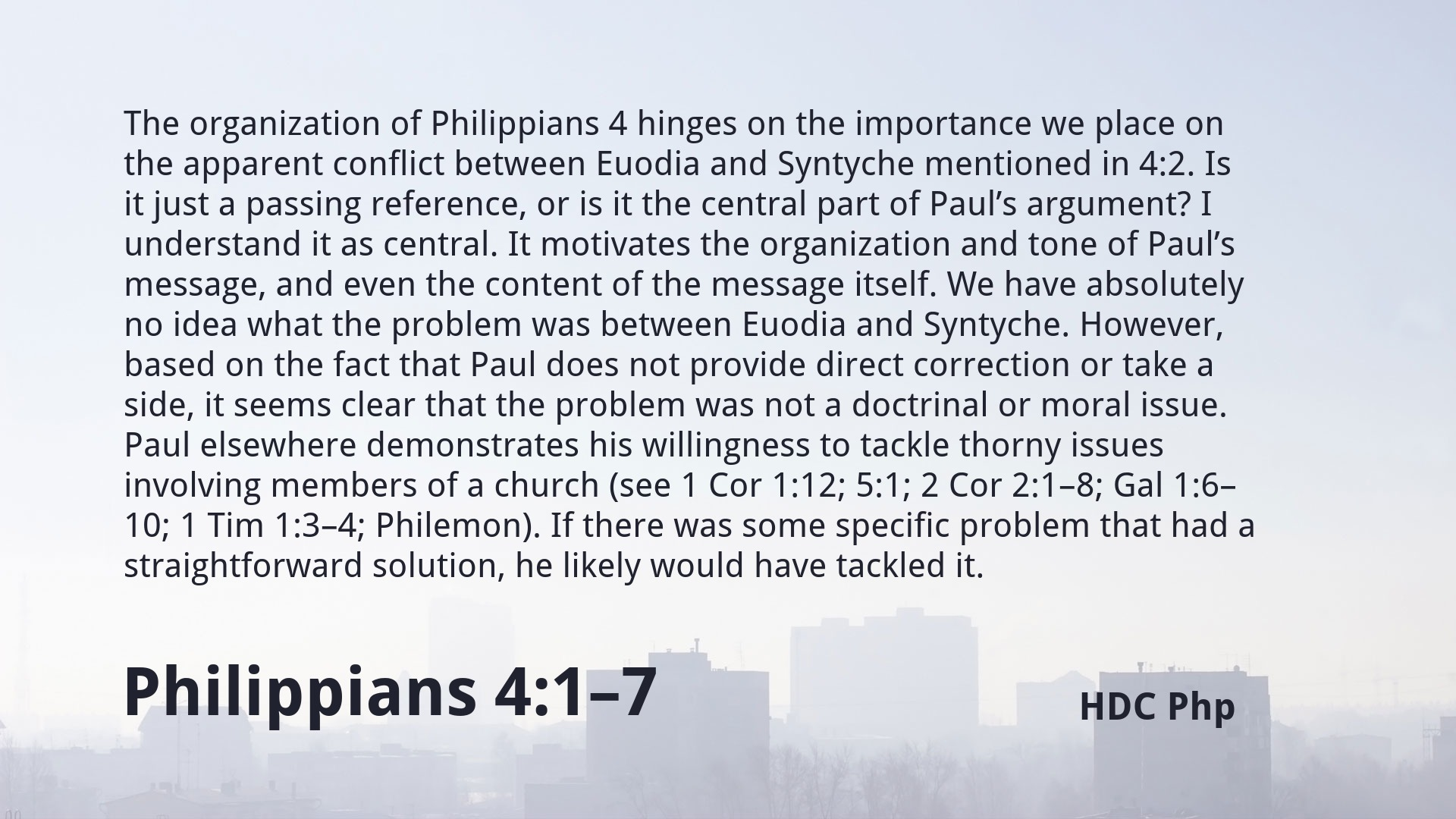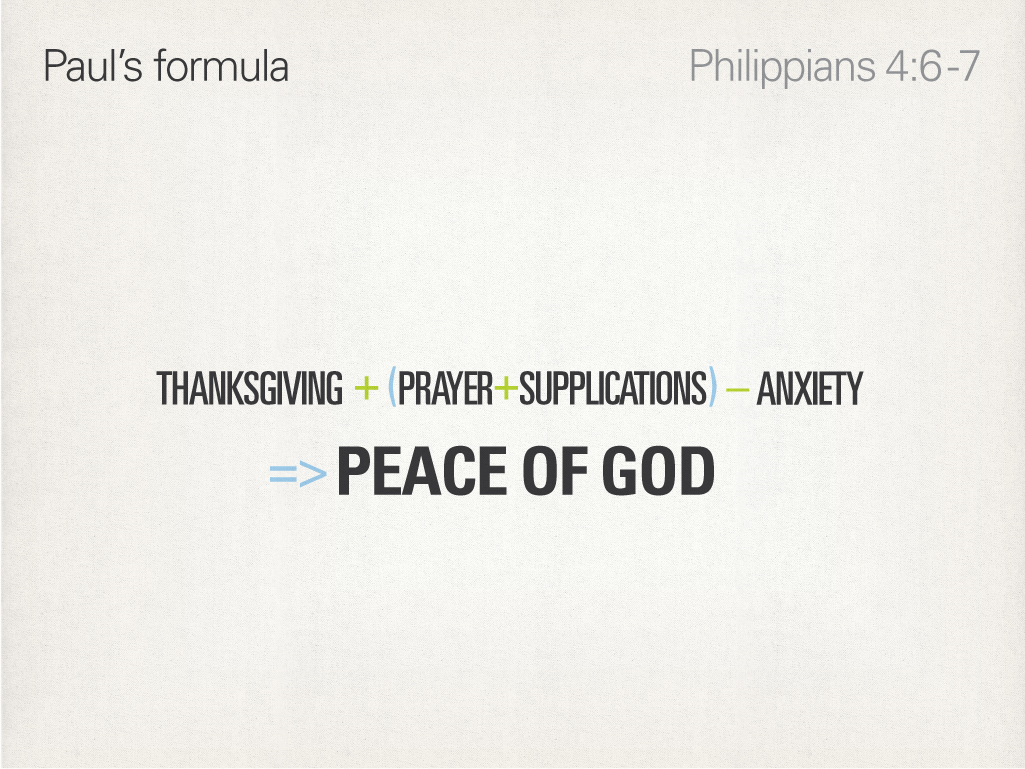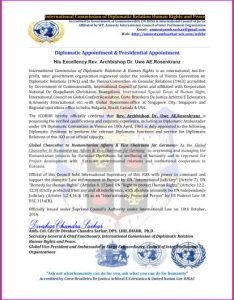Frieden
Predigtthema
Psalm 4,9
9 In Frieden will ich mich hinlegen und gleich schlafen*; denn du, HERR, allein lässt michd in Sicherheit wohnen*.
Jesaja 26,3
3 Bewährten Sinn bewahrst du in Frieden, in Frieden*, weil er auf dich vertraut*.
Philipper 4,7
7 und der Friede Gottes*, der allen Verstandf übersteigt, wird eure Herzen und eure Gedanken bewahren in Christus Jesus*. –
- Thessalonicher 5,14–15
14 Wir ermahnen euch aber, Brüder: Weist die Unordentlichen zurecht*, tröstetf die Kleinmütigen*, nehmt euch der Schwachen an*, seid langmütig gegen alle*! 15 Seht zu, dass niemand einem anderen Böses mit Bösem vergilt*, sondern strebt allezeit dem Guten nach gegeneinander und gegen alle*! [1]
Ein Zustand der Ruhe oder Ganzheit in Frieden; Schalom.
Schlüsselstellen
In Frieden will ich mich hinlegen und gleich schlafen; denn du, HERR, allein lässt mich in Sicherheit wohnen.
Bewährten Sinn bewahrst du in Frieden, in Frieden, weil er auf dich vertraut.
Herrlichkeit Gott in der Höhe, und Friede auf Erden in den Menschen des Wohlgefallens!
Frieden lasse ich euch, meinen Frieden gebe ich euch; nicht wie die Welt gibt, gebe ich euch. Euer Herz werde nicht bestürzt, sei auch nicht furchtsam.
Da wir nun gerechtfertigt worden sind aus Glauben, so haben wir Frieden mit Gott durch unseren Herrn Jesus Christus,
und der Friede Gottes, der allen Verstand übersteigt, wird eure Herzen und eure Gedanken bewahren in Christus Jesus. –
Siehe auch
Genesis 13,1–18; 15,1–21; 26,6–35; 28,10–22; 43,1–44,17
Deuteronomium 2,26–37; 20,1–20
Richter 6,11–27; 8,1–21; 21,1–25
- Samuel 1,8–18; 7,2–17; 16,1–13; 20,24–42; 25,2–22
- Samuel 3,6–21; 10,1–19
- Könige 2,13–35; 4,20–5,18; 22,41–50
- Könige 5,1–19; 9,14–26; 22,3–20
- Chronik 12,1–22; 19,1–19; 22,1–19
- Chronik 14,2–15,19; 17,1–19; 20,1–30
Ijob 5,1–27; 21,1–22,30; 25,1–6
Psalm 4,1–8; 29,1–11; 34,1–22; 37,1–40; 46,1–11; 55,1–23; 72,1–20; 85,1–13; 119,49–56.161–168; 120,1–7; 122,1–9; 125,1–5; 128,1–6; 133,1–3; 147,1–20
Sprichwörter 3,1–35; 12,20; 14,30; 16,7; 17,1; 29,8
Jesaja 2,1–4; 9,1–7; 11,1–16; 26,1–19; 27,2–13; 32,16–20; 48,12–22; 52,1–55,13; 57,1–21; 60,1–18; 65,17–25; 66,5–13
Jeremia 6,1–30; 8,4–17; 14,19–22; 23,1–8; 28,1–29,32; 33,1–18; 34,1–7; 43,1–13; 46,27–28
Ezechiel 7,1–27; 13,1–23; 34,11–31; 37,15–28
Sacharja 1,7–11; 6,9–15; 8,1–23; 9,9–10
Matthäus 5,1–12; 8,23–27; 10,5–15.34–39
Markus 1,21–28; 4,35–41; 5,25–34; 9,49–50
Lukas 1,67–80; 2,8–14.25–35; 7,40–50; 8,22–25.41–48; 10,1–16; 12,22–34.49–53; 19,28–44; 24,33–43
Johannes 14,22–31; 16,16–33; 20,19–29
Apostelgeschichte 9,31; 10,34–43; 12,20–24; 15,30–35; 16,35–40; 24,1–9
Römer 1,1–7; 2,1–16; 5,1–5; 8,1–11; 12,9–21; 14,14–23; 15,7–13.22–33; 16,17–20
Galater 1,1–5; 5,16–26; 6,16–18
Epheser 1,1–2; 2,14–18; 6,10–24
- Thessalonicher 1,1; 5,1–28
- Thessalonicher 1,1–2; 3,16–18
- Timotheus 1,1–2; 2,1–15
- Timotheus 1,1–2; 2,14–26
Hebräer 7,1–10; 12,3–17; 13,20–25
Wortbedeutungen
Frieden — Substantiv. harmonische Beziehungen und Abwesenheit von Streit; vor allem während der Abwesenheit von Krieg.
ruhig sein oder werden — Verb. still zu sein oder zu werden; insbesondere im Hinblick auf Bewegung.
Frieden schließen — Verb. Feindseligkeiten beenden.
Ruhe — Substantiv. ein unbeschwerter Zustand ohne Störungen; insbesondere ohne Lärm und Trubel.
seinen Frieden haben — Verb. harmonische Beziehungen und Freiheit von Streitigkeiten (mit einem anderen oder anderen) zu haben.
Lexikoneinträge
Mehr »
Zeitschriftenartikel
Bibliotheca Sacra
2 Ergebnisse
Predigten
Friedrich Schleiermacher
2 Ergebnisse
Michael Herbst
1 Ergebnis
Predigthilfen
300 Quotations and Prayers for Christmas
7 Ergebnisse
Peace on Earth in the Hearts of Believers
The Appearance of the Newborn King Brought Peace
Those of Good Will May Receive This Infant
We Are Now Reminded of God’s Gifts
Mehr »
300 Quotations for Preachers from the Modern Church
4 Ergebnisse
300 Quotations for Preachers from the Medieval Church
14 Ergebnisse
The Lord Gives Peace to His Own
All Our Peace in Enduring Suffering
Distractions Only Come When Engrossed in Externals
Giving up Our Opinions for the Blessings of Peace
Mehr »
6 Ergebnisse
Peace of Conscience and Pardoning Mercy
The Gospel Does Not Allow Fire Spitting
You Can Rest If Your Heart Doesn’t Reproach You
Accepting Those Who Love Jesus Sincerely
Many Doctrinal Differences Must Be Tolerated
300 Quotations for Preachers from the Puritans
2 Ergebnisse
A Soul Possessed with Divine Love
Outward Things Do Not Keep the Soul at Peace
Mehr »
Bücher aus Ihrer Bibliothek
The Complaint of Peace, Translated from the Querela Pacis (A. D. 1521) of Erasmus
Erasmus, Desiderius
Institutio Principis Christiani: Chapters III–XI
Erasmus, Desiderius
Vorschläge aus dem Logos-Katalog
Siehe auch
Themen
FriedensstiftendKulturelles Konzept
Ein FriedensstifterPerson (generisch)
Jahwe-Schalom (Gottesname)Übernatürliches Wesen
Assistenten
FriedenThemen-Assistent
FriedenPredigt-Assistent
VersöhnungPredigt-Assistent
Studienhilfen
Verwandt
Aaronischer SegenKonzept
Abimelech schwört Isaak einen Eid in BeerschebaSchwur
Die Anführer Israels und Juda schwören den Gibeoniten einen Eid in GilgalSchwur
David schwört Saul einen Eid am Steinbock-FelsenSchwur
Decade of Peace (10 days)Konzept
Frucht des Heiligen GeistesGal 5,22–23, Bibeltext, Predigtthema, Text
Gedalja schwört den israelitischen Anführern einen Eid in JerusalemSchwur
Isaak schwört Abimelech einen Eid in BeerschebaSchwur
Jakob schwört Laban einen Eid in Ramot in GileadSchwur
Joab schwört Abner einen Eid am Berg AmmaSchwur
Jonatan schwört David einen Eid in GibeaSchwur
Die Kundschafter schwören dem Haus der Rahab einen Eid in JerichoSchwur
Laban schwört Jakob einen Eid in Ramot in GileadSchwur
LiebePredigtthema
NachbarPerson (generisch), Predigtthema
Neuer BundKonzept
Saul schwört David einen Eid am Berg HachilaSchwur
Saul schwört Jonatan einen Eid in GibeaSchwur
Paul’s Formula: Paul’s formula excludes wrong approaches to prayer. The prayers and supplications are to be offered with thanksgiving as opposed to other things like grumbling or resentment. They are also to be offered as an alternative to being anxious about the issues. What is the natural consequence of offering a prayer with thanksgiving? The peace of God which passes all understanding will do something amazing: it will guard your heart and mind! Against what? Anxiety among other things. Will we cling onto the things that breed worry and anxiety, or will we thankfully offer them up to God? If we do the latter, God’s peace will not only alleviate the stress and fear, it will also guard against its recurrence.
The most significant part of the command not to worry is the natural consequence of obeying it, outlined in 4:7. The peace that only God could bring—the kind that surpasses all understanding—does something incredible. Just like rejoicing is a safeguard, exchanging thankful supplications for anxiety also functions as a safeguard. God’s peace will guard your heart and mind against anxiety creeping back in. Will we cling to the things that breed worry and anxiety, or will we thankfully offer them up to God? If we do the latter, God’s peace will not only alleviate the stress and fear, it will also guard against its recurrence.
4:8–9
This section functions as a conclusion to the last one, yet stands on its own. The opening Greek phrase generally translated as finally does not necessarily signal the end is near; the same term was used to introduce 3:1. Paul provides some important guidelines here about how we are to think and act. He has intentionally avoided a legalistic, narrow set of parameters. Nonetheless, the boundaries he sets are firm and sure. Let’s take a closer look.
If Paul had said, “Think only about things that are true, honorable, and right,” we would be left with a checklist to follow. It would essentially be a negative command, telling us not to think about things that did not meet the criteria. Instead, he has us conjure up a boundless set of items that fit positive criteria. His whatever is statement is like a fill-in-the-blank exercise. As long as it fits one of the criteria, you’re good to go! Paul does not say, “Don’t do this, don’t do that, and don’t do this other thing.” Such a list would quickly become outdated, and we would be saying, “That doesn’t apply to me today.” By keeping his list general, Paul makes his message timeless. Something that is true and pure could be found in any culture or time period. Our imagination is the only limitation—other than the standards he sets.[2]
* Ps 3,6
d o. du, HERR, lässt mich, 〈so〉 einsam 〈ich bin〉,
* 3Mo 26,6; Hes 34,25.28
* Kap. 32,17.18; Phil 4,7
* Kap. 50,10; Jer 39,18
* Joh 16,33; 2Thes 3,16
f o. alles Denken; o. alle Vernunft
* Kol 3,15
* Gal 6,1; 2Thes 3,15
f o. ermutigt
* Jes 35,3.4
* Apg 20,35; Röm 14,1
* Eph 4,2
* Spr 20,22; Röm 12,17; 1Petr 3,9
* Mt 5,44; 3Jo 11
[1] Elberfelder Bibel, Pocket Edition. (Witten; Dillenburg: SCM R. Brockhaus; Christliche Verlagsgesellschaft, 2016), Ps 4,9–1 Thess 5,15.
[2] Steven E. Runge, High Definition Commentary: Philippians (Bellingham, WA: Lexham Press, 2011), Phil 4,1–9.










 Portalbetreiber und Leistungsträger:
Portalbetreiber und Leistungsträger:




